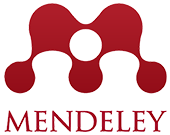PROFIL TUGAS PERKEMBANGAN MAHASISWA PRODI PENDIDIKAN KIMIA UNIVERSITAS SULTAN AGENG TIRTAYASA
Abstract
Research on Profile of Achievement of Tasks of Second Semester Student Development Chemistry Study Program Teacher Training and Education Faculty of the University of Sultan Ageng Tirtayasa formulated a profile of student groups in eleven aspects of development. The study aims to determine the level of group development in eleven aspects of student development in the form of frequency distribution of task achievement, highest grain picture, and lowest grain picture. The research method used is descriptive quantitative research method to obtain an empirical picture. The study population was second semester students in the Chemistry Study Program at the Faculty of Teacher Training and Education, Sultan Ageng Tirtayasa University. The research subjects used saturated sampling techniques, namely all second semester students of the Chemistry Study Program. The tool for collecting data on the achievement profile of development tasks is the Development Task Inventory using the Development Task Analysis software or ATP version 3.5. Research results in achieving student development tasks at a thorough level. By group, the highest eight items of students are at the individualistic and thorough level. While the lowest eight items of students are at the level of self-awareness and thoroughness.
Keywords: Students, development task, chemisty
Keywords
Full Text:
PDFReferences
Ahmadi, A. (2013). Psikologi Sosial (Edisi revisi). Jakarta: PT. Rineka Cipta
Bakhtiar, M.I. & Latif, S. (2017). Tracer Study Alumni: Upaya Pengembangan Prodi Bimbingan Konseling Universitas Negeri Makassar. Jurnal Kajian Bimbingan dan Konseling.2 (1).32-40.
Djamarah, S.B. (2002). Psikologi Belajar. Jakarta: Rineka Cipta.
Gumilang, G.S. (2017). Niche Konselor Indonesia dalam Pendidikan Formal. Jurnal Fokus Konseling. 3 (2).194-204.
Gunarsa, S. D, & Gunarsa, Y. S. D. (2010).Psikologi Perkembangan Anak dan Remaja.Jakarta: BPK Gunung Mulia.
Haditono, S.R. (2001). Psikologi Perkembangan. Yogyakarta: Universitas Gajah Mada.
Hartaji, D. A. (2012).Motivasi Berprestasi Pada Mahasiswa yang Berkuliah Dengan Jurusan Pilihan Orangtua. Fakultas Psikologi Universitas Gunadarma.
Kartadinata, S., dkk.(2003). Inventori Tugas Perkembangan Siswa SLTP LPBB-FIP dan Program Pascasarjana.UPI.
Khoiriah, A. (2010). Pemanfaatan Inventori Tugas Perkembangan (ITP) dalam Pembuatan Program Bimbingan dan Konseling di SMPN 21 Pekanbaru.Skripsi pada Jurusan Kependidikan Islam Fakultas Tarbiyah dan Keguruan Universitas Islam Negeri Sultan Syarif Kasim Riau Pekanbaru. Tidak Diterbitkan.
Lusikooy.(2011). Bimbingan Konseling Dalam Berbagai Latar Kehidupan. Bandung: Refika Aditama.
Nurihsan A. J. (2009). Bimbingan Konseling Dalam Berbagai Latar Kehidupan. Bandung: Refika Aditama.
Papalia, D.E., & Feldman, R.D. (2008).Human Development (Psikologi Perkembangan). Jakarta: Kencana.
Santrock, J.W. (2013). Adolescence (Perkembangan Remaja).Terjemahan. Jakarta: Penerbit Erlangga.
Sceener.(1997). Perkembangan Peserta Didik.Jakarta: Depdikbud.
Setiawan, D. & Sitorus, J. (2017).Urgensi Tuntutan Profesionalisme dan Harapan Menjadi Guru Berkarakter.Jurnal Cakrawala. 4 (3). 122-129
Siswoyo, D. (2012). Ilmu Pendidikan. Yogyakarta: UNY Press.
Soesilowindradini, D. (1969). Psikologi Perkembangan Remaja. Surabaya:
Sunarta, H. & Hartono, B. (1995).Perkembangan Peserta Didik. Jakarta: Depdikbud.
Penerbit Usaha Nasional.Yusuf, S. (2012). Program Bimbingan dan Konseling di Sekolah. Bandung: Rizqi Press.
DOI: http://dx.doi.org/10.30870/jpbk.v4i2.6550
Refbacks
- There are currently no refbacks.
Indexed By

.png)









1.png)